Education specialist graduate degree in leadership
Trevecca’s education specialist degree in accountability and instructional leadership (Ed.S.) is specifically designed for those who are looking to make a difference as a dynamic leader in education. With this degree, administrators, instructional facilitators and teachers can learn about ways to improve student, school and district performance.
Want More Info?
All credit hours from this program can be transferred to Trevecca's Doctor of Education program.
Students in Trevecca’s Ed.S. program choose one of two specialized tracks to tailor their degree:
Accountability
This track builds on the strategic leadership and data-driven focus of the program and gives students an opportunity to think through the trends and challenges in education through focused research. They will be empowered to explore existing studies and use their own experience and learning to add to the field of knowledge.
Artificial Intelligence (AI)
This track empowers educators and leaders to integrate artificial intelligence (AI) effectively and ethically into their classrooms and institutions. By leveraging AI tools, educators can streamline tasks, enhance efficiency and reclaim valuable time—all while maintaining the highest standards of teaching and academic integrity. Graduates will emerge as forward-thinking leaders, ready to use AI to support student success, equip teachers with smarter workflows and sustain the transformative impact of education without sacrificing their well-being.
Program Benefits
- Complete your Ed.S. degree fully online in 15-16 months with no residency requirements.
- Continue to work and focus on your other priorities while earning your degree, taking one course at a time with all materials delivered to you.
- Utilize a built-in support system and complete your degree alongside others who are working toward similar goals through Trevecca’s cohort model.
- Learn from faculty who possess the highest degrees in their fields and have relevant and valuable real-world experience.
- Take advantage of an accelerated path toward an Ed.D. if you choose.
- Become eligible for the Instructional Leadership License (ILL-B)
- Focus your degree on AI or accountability by choosing a specialty track in either area.
What to Expect
As a student in Trevecca’s specialist in education program, you’ll become an expert in leadership styles, data and accountability. You’ll also learn how to create and sustain effective environments to help low-performing schools; how to use data collaboratively to build healthy school cultures; how to close the achievement gap for students and schools; and how to recruit and retain effective professionals.
The Ed.S. program will also position you for continued licensure and education in your field. This degree leads to eligibility for the Instructional Leadership License (ILL). Also, all credits from the program are directly transferable to our Doctor of Education degree in leadership, which only takes an additional 30 credit hours to complete.
Why Choose Trevecca?
Founded in 1901 and a leader in online education for more than two decades, Trevecca helps students discover and pursue an individual calling by providing innovative instruction; cultivating a supportive, Christ-centered community; and establishing relationships that open doors.
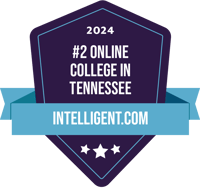 Recognized nationally and locally for academic quality, Trevecca has earned a reputation for providing the world with servant leaders, problem solvers and difference makers. Trevecca’s holistic approach to education encompasses intellectual, social, emotional, physical and spiritual growth.
Recognized nationally and locally for academic quality, Trevecca has earned a reputation for providing the world with servant leaders, problem solvers and difference makers. Trevecca’s holistic approach to education encompasses intellectual, social, emotional, physical and spiritual growth.
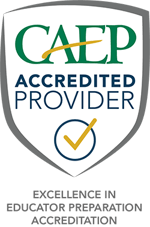 Trevecca’s School of Education degree programs meet the rigorous national standards for education preparation established by the Council for the Accreditation of Educator Preparation (CAEP). CAEP promotes excellence in educator preparation through content and pedagogy, clinical partnerships and practice, candidate recruitment, progression and support, program impact, quality assurance and continuous improvement.
Trevecca’s School of Education degree programs meet the rigorous national standards for education preparation established by the Council for the Accreditation of Educator Preparation (CAEP). CAEP promotes excellence in educator preparation through content and pedagogy, clinical partnerships and practice, candidate recruitment, progression and support, program impact, quality assurance and continuous improvement.

Course Descriptions
Get details on all the courses you’ll complete as you work toward this degree at Trevecca.
Read MoreHere’s a look at the approximate tuition rates you could expect for this program at Trevecca, including the cost per credit hour and the total tuition expense for the full degree program. Please note that rates and fees are subject to change.
Here’s a look at the approximate tuition rates you could expect for this program at Trevecca, including the cost per credit hour and the total tuition expense for the full degree program. Please note that rates and fees are subject to change.
Cost/Credit Hour$562 |
Hours30 |
Tuition Cost*$16,860 |
*$150 Student Resource Fee assessed per course. $100 estimated book cost per course.
- Licensure
- Admission Requirements
- Bridge to Ed.D
Instructional Leadership License
Graduates from the Ed.S. program may qualify for the Instructional Leadership license (ILL-B).
Requirements for the Instructional Leadership License - Beginning (ILL-B) for the state of Tennessee begins with the following process:
- Complete required coursework in the accountability and instructional leadership program.
- Pass state-required test (School Leaders Licensure Assessment – PRAXIS SLLA 6990).
- Request ETS (Educational Testing Service) to send score to Trevecca Nazarene University.
- A master’s degree
- Three years of verifiable full-time teaching experience.
- An active teaching license, if you are seeking the administrative licensure that can be part of the program.
Steps to Apply
- Complete the online application (it's free!).
- Need help applying? Read the step-by-step instructions here!
- Fill out FAFSA to be considered for financial aid.
- Request a copy of your official transcript from your previous graduate institution.
- Provide photocopy of government-issued identification (e.g., driver's license, state ID, military ID, passport). This requirement ensures that Trevecca complies with the U.S. Department of Education expectations for student verification. (This is only required for students enrolled in an online program.)
- An enrollment counselor will contact you with the next steps.
Bridge to Ed.D
All credits from the Ed.S. program are directly transferable to our Doctor of Education in leadership (Ed.D.), which only takes an additional 30 credit hours to complete. This Ed.S.-to-Ed.D. bridge furthers student development, allowing them to advance their leadership expertise, emphasize strategic thinking, and hone their research skills.
Career Opportunities: Ed.S.
With Trevecca’s education specialist degree, you’ll be ready to advance your career and tap into higher earning potential. This degree will position you to be competitive in the following roles:
- Dean of instruction
- Dean of students
- Instructional coach
- Assistant principal
- Principal
- AI integration specialist
- AI policy and ethics advocate
- District superintendent
- District office supervisor
Many students choose to bridge to the Doctor of Education (Ed.D.) program and earn their doctoral degree in education after completing this program.
“My experience at Trevecca expanded my ability to face challenges, deepened my faith, gave me lifelong friendships and ultimately helped me become a better version of myself.”
Our Faculty
-
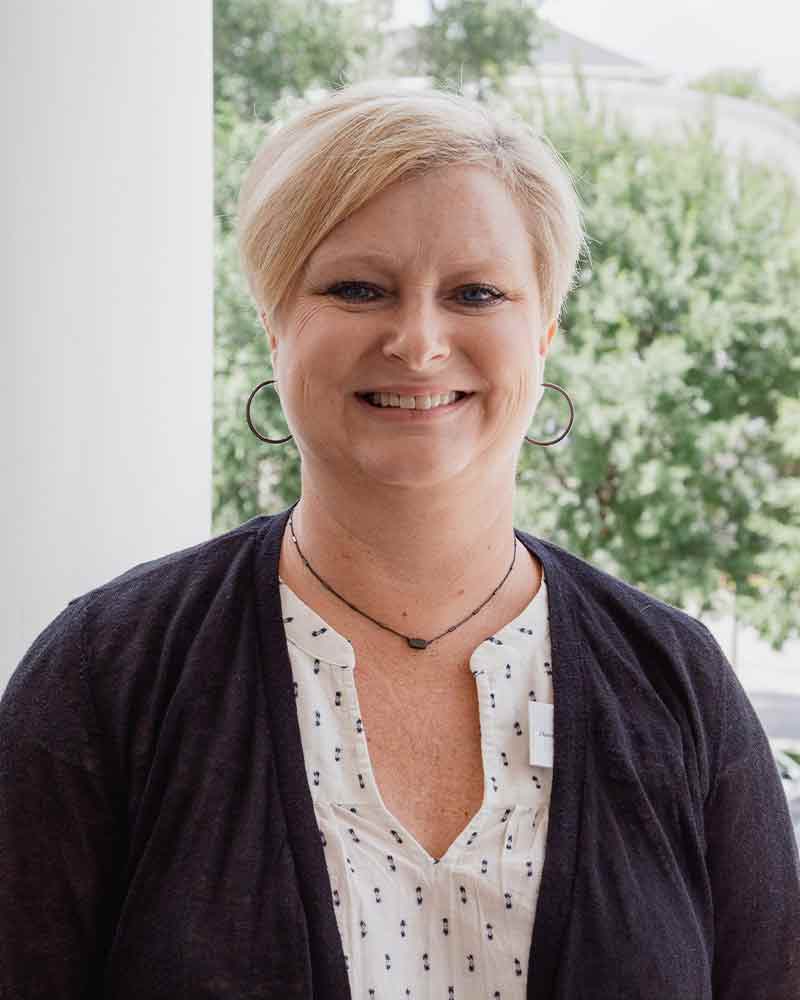
Tavia McLeod
Director, Administrative Licensure Programs
Tavia is an assistant Professor in the School of Education. She serves as the director of the instructional leadership programs which include the M.Ed. in education leadership and the Ed.S. specialist in accountability and instructional ...Read Full Bio -
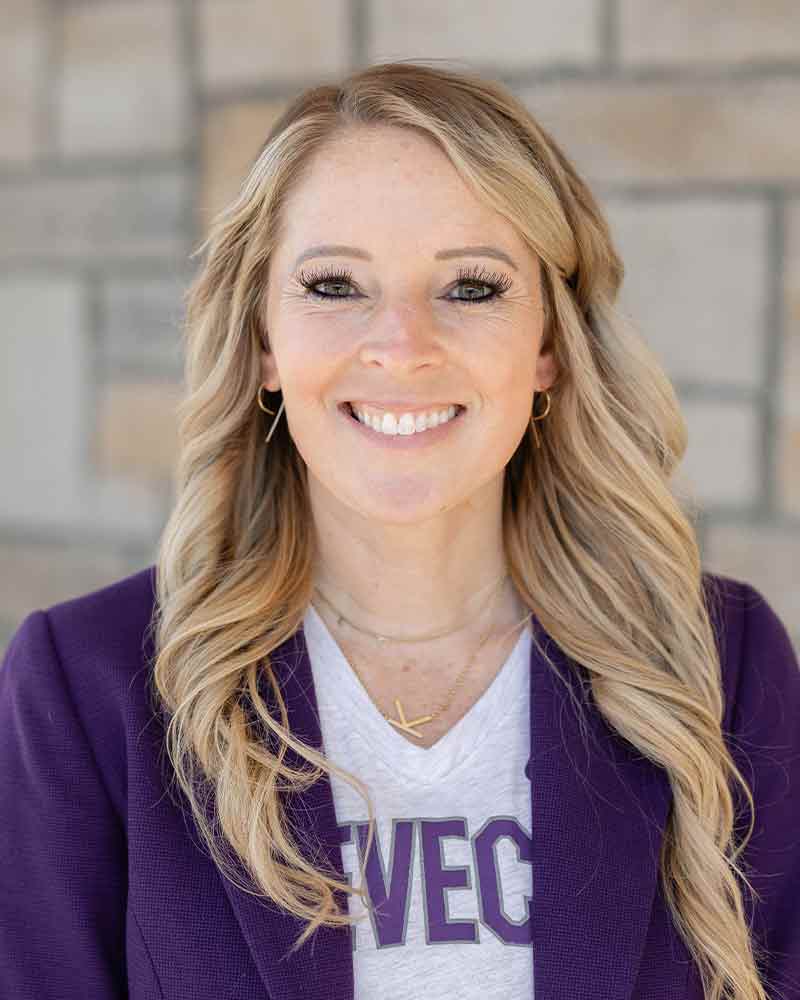
Kristin Bledsoe
Dean, School of Leadership & Interdisciplinary Studies, Associate Professor of Leadership Studies
Read Full BioDr. Kristin Bledsoe is a distinguished leadership educator and the Academic Dean for the School of Leadership and Interdisciplinary Studies at Trevecca Nazarene University in Nashville, Tennessee. In her dual role as an Associate Professor, she ...
-

Tavia McLeod
Director, Administrative Licensure Programs
Tavia is an assistant Professor in the School of Education. She serves as the director of the instructional leadership programs which include the M.Ed. in education leadership and the Ed.S. specialist in accountability and instructional ...Read Full Bio -
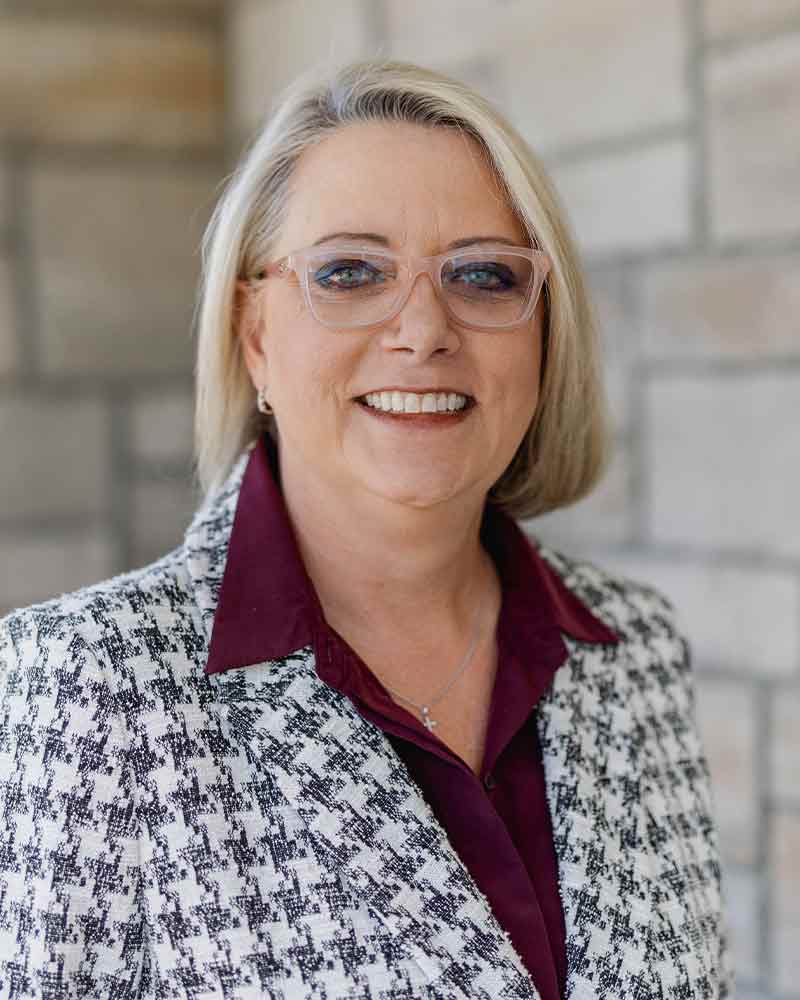
Jana Roberts, Ph.D.
Program Leader for Research, Online Doctoral Leadership Studies
Read Full BioJana is passionate about walking alongside students as they pursue one of the most meaningful goals of their academic journey—earning their doctorate. She holds a doctorate in Leadership Studies from Trevecca, an Advanced Certificate in Strategic ...
Course Descriptions
Get details on all the courses you’ll complete as you work toward this degree at Trevecca.
Instructional Leadership, Culture, and Climate
EDU 7302
Candidates will explore the role of School Leader as they differentiate between administration, management, and instructional leadership styles within the school setting to improve student achievement with an emphasis on creating a school culture and climate that establishes high expectations for all stakeholders. The financial and legislative roles of local, state, and federal levels of government will be considered. Candidates will examine and unpack the TEAM Administrator Evaluator Rubric for a deep understanding of what an effective administrator needs to know and be able to do. Professional Learning Communities (PLCs) will provide the foundation in creating models for leveraging transformational change within the school culture for urgent change. Practical knowledge and tools will be examined to create and sustain collaborative PLC work that actively engages stakeholders in creating a shared vision and culture of supporting learning for all. Each candidate will analyze provided school data and build an effective School Improvement Plan upon the provided data.
Current Research in Action
EDU 7401
This course introduces the educational specialist candidate to the principles of educational and applied research. Empirical research, both qualitative and quantitative, will be explored. Emphasis will be placed on establishing a researched-based project applicable to a specific school setting. Processes will include identification of an area of need through data analysis, development of major research questions, and identification of appropriate strategies, methods and design for an inquiry-based study. This course establishes the student’s basic understanding of educational and applied research while creating a broad based skillset of best practices in problem-solving within the environment.
Field Experience I for Accountable Leaders
EDU 7420
Toolkit for Low Performing Schools
EDU 7305
Since there is no set of strategies that when applied will lead each school from low performing to excellence, the candidates in this course will develop and exhibit the skills, structures, and leadership strategies needed to create and sustain effective leadership environments and enhance instructional excellence. Each candidate will become adept in the selection and implementation of research-based tools to determine the appropriate strategies for their particular school situation.
Navigating and Mapping Change through Data Analysis: Beyond Data (What Now?)
EDU 7304
This course will provide candidates the tools necessary to analyze and build upon the influences and influencers that make a difference for students and their learning. The focus will identify ways to build school cultures focused on using data collaboratively to drive decisions, to implement strategic plans, to monitor progress and to facilitate and sustain change.
Field Experience II for Accountable Leaders
EDU 7425
Instructional Strategies for Closing the Achievement Gap
EDU 7306
This course prepares specialists to provide training for all teachers in models for teaching and learning, formative assessment tools and data processes to determine remediation and accelerated learning strategies for all learners. Candidates insure that instructional strategies are fully aligned both vertically and horizontally with the adopted standards. The budgeting process is explored at the local school level. Candidates communicate a compelling case and a sense of urgency to address chronic achievement deficits. The TEAM teacher evaluation model will be taught and practiced. This course will focus on research to increase instructional time in core areas, quick and intensive support for struggling students, and instructional strategy choices appropriate to the students being served.
Human Capital and Efficacy Building
EDU 7303
Human Capital and Efficacy Building is designed to enable educational leaders develop an effective management strategy through examination of the process and procedures necessary to recruit, hire, place, induct, professionally develop, evaluate, and retain excellent teachers and administrators to increase student outcomes. One aspect of the course is the analysis of performance problems and recommendations needed to assist the employee and organization to achieve organizational goals and to manage change. An integral part of managing human capital is to ensure all stakeholders have positive, highly functional self-efficacy.
Educational Research Development I
EDU 7402
This second research course is designed to assist and support Ed.S. candidates at Trevecca Nazarene University as they move toward implementation and completion of their selected action research project, the capstone of the program. This educational research project is a substantial research endeavor focused on results-driven school improvement. Educational Research Development I begins with a systematic in-depth review of the literature for their identified project. Candidates will also develop appropriate methodology and initiate the implementation phase of their plan as well as analysis of qualitative and quantitative research and achieving individual and group competencies.
Field Experience III for Accountable Leaders
EDU 7430
Distributive Leadership for Building Capacity and Program Sustainability
EDU 7307
This course combines the tenets of transformational leadership, situational and servant leadership, and capacity building within an organization with a focus on program sustainability. Research has shown that any sustainable change must be implemented in an organization's culture and must be owned by members of that organization in order to be maintained after the funds are depleted and the change agent has left the building. Therefore, this course will explore in detail the three Cs: Communication, Collaboration, and Change with effective methods for implementation. Case studies with essential tools for potential specialists in organizations will be a focal point of the course. Strategic planning, policy development, understanding of existing policies, procedures, and legal requirements are competencies essential for any specialist. Knowledge of existing governing bodies with political implications and an ability to quickly assess situations in failing organizations will also be examined in this course.
Educational Research Development II
EDU 7404
This third research course is designed to assist and support Ed.S. candidates at Trevecca Nazarene University as they move toward implementation and completion of their selected action research project, the capstone of the program. This educational research project is a substantial research endeavor focused on results-driven school improvement. Educational Research Development II continues the final phase of implementation of the action research project started in Current Research in Action and continued in Educational Research Development I with a systematic in-depth review of the literature for their identified project. Candidates will implement the appropriate methodology and continue the implementation phase of their plan as well as begin analysis of qualitative and quantitative research and achieving individual and group competencies.
Capstone Colloquium
EDU 7403
The fourth research course is designed to assist and support Ed.S candidates at Trevecca as they move toward completion of their selected applied research project, the capstone of the Ed.S. experience. This educational research project is the conclusion of their research endeavor focused on results-driven school improvement. Candidates will complete the analysis of qualitative and quantitative research and achieving individual and group competencies. Candidates will present their research project findings to a juried panel.
Field Experience IV for Accountable Leaders
EDU 7435
*For a complete list of courses, tracks and other relevant information, view the program's course catalog.
Related Articles
-

Head Uses Specialist Education Degree to Improve Leadership and Connect with Students
Explore how Cynthia Head's educational journey at Trevecca, pursuing a specialist degree in accountability and instructional ...
Read More -

Smith Uses Ed.S. to Excel as School Administrator and Inspire Colleagues to Pursue Advanced Degrees
Discover how Justin Smith used his Ed.S. degree to excel as a school administrator, inspire colleagues, and implement positive ...
Read More -

Trevecca Launches New Artificial Intelligence Track for Education Specialist Degree
Trevecca Nazarene University launches an AI-focused track in their Education Specialist degree program to equip educators with ...
Read More
Related Programs
-
Teaching (M.A.)
The Master of Arts in Teaching offers an endorsement in either elementary education (K-5) or secondary education (6-12) to individuals with a bachelor’s degree seeking to become a teacher. The program equips students in both remote and online instruction strategies and provides hands-on learning with student teaching opportunities in local classrooms.
Learn More

